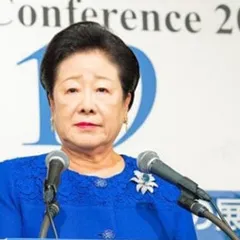
by Bitter Winter — Twelve NGOs, representing a who’s who of religious liberty advocacy throughout the world, protest the Japanese government’s actions.
We represent religious and secular organizations that share a commitment and an interest in freedom of religion or belief (FoRB), which scholars have identified as the most threatened human right in the world today. We also share a sympathy and admiration for Japan, its culture, and its vibrant democracy in a part of the world plagued by bloody non-democratic regimes.
We have followed with great concern the developments in Japan after the assassination of former Prime Minister Shinzo Abe, including the attempt to make the Family Federation for World Peace and Unification (formerly known as the Unification Church) somewhat responsible for it and to request its dissolution as a religious organization.
We understand that the assassin has offered as motivation for his heinous crime that he intended to punish Abe for his collaboration with the Family Federation, a religious organization he hated, he claimed, because his mother went bankrupt in 2002 after her excessive donations to the group. Not all is clear in the crime, including why the assassin waited for 20 years after his mother’s bankruptcy to kill Abe. The fact that members of the Family Federation partially reimbursed the donations after relatives of the criminal’s mother complained is rarely mentioned in the media. Nor is the fact that the assassin himself was never a member of the Unification Church emphasized, as it should be.
Following the crime, an old campaign was revamped by lawyers and others hostile to the Family Federation mostly for political reasons, as they resented for decades its successful sponsorship of anti-Communist initiatives. It was claimed—through a mixture of truths referring to events that occurred decades ago, half-truths, and outright lies—that the Family Federation was an anti-social organization financing itself by soliciting extravagant donations and through “spiritual sales” of objects sold to devotees for sums greatly exceeding their value, and that second-generation members suffered because of their strict education. Press conferences and an unprecedent media campaign of slander followed.
We acknowledge that excessive pressure on devotees to donate and a strict education not all second-generation members agree with are problems that exist in many religious organizations. We note, however, that with respect to the Family Federation, they have been reported unfairly and one-sidedly, listening only to the militant lawyers and to “apostate” ex-members whose stories in some cases have been exposed as false by independent journalists.
“Spiritual sales” is a label created by opponents to designate activities carried out by believers of the Family Federation that have long since ceased. The Family Federation counseled its over-enthusiastic members to cease these sales activities and issued a public declaration condemning them in 2009. Before the assassination of Shinzo Abe, the number of lawsuits against “spiritual sales” by Family Federation members that occurred after 2009 had decreased to only a handful. Many of the cases advertised in the media refer to incidents said to have happened more than 15 years ago. Hostile lawyers claim otherwise, but facts do not agree with their statements, and they sometimes maliciously confuse the dates when the so-called “spiritual sales” occurred with the dates of the lawsuits started years thereafter.
As for soliciting donations and educating their children in a strict conservative way, there is no evidence that the Family Federation acts in a way that is significantly different from how dozens of other religious organizations behave.
It seems that the dissolution of the Family Federation, a measure reminiscent of practices current in China and Russia rather than in democratic countries, is out of proportion with the charges raised against it and not consistent with the Federation’s law-abiding behavior. It will also open the way to similar action against other religious minorities unpopular with certain lawyers or political groups and the media.
We urge Japanese authorities and courts not to proceed with a measure that would forever taint the image of Japan as a country committed to democratic principles, including FoRB. Pressing for dissolution will align Japan with totalitarian regimes “where unpopular religious minorities are ‘liquidated’ after the ground has been prepared by slanderous media campaigns,” as Amb. Suzan Johnson Cook, former Ambassador-at-Large for the Office of International Religious Freedom at the U.S. State Department, and Dr. Katrina Lantos-Swett, co-chair of the International Religious Freedom Summit, wrote in a September op-ed on Real Clear Politics.
This is not the Japan we have learned to respect and love.
October 14, 2023
Marco Respinti, Director-in-charge, Bitter Winter, a daily magazine on freedom of religion and human rights
Thierry Valle, President, CAP-LC – Coordination des Associations et des Particuliers pour la Liberté de Conscience
Massimo Introvigne, Co-founder and Managing Director, CESNUR – Center for Studies on New Religions
Eric Roux, Chairman, EIFRF – European Inter-Religious Forum for Religious Freedom
Francesco Curto, Co-founder, Fedinsieme [Faiths Together]
Alessandro Amicarelli, President, FOB – European Federation for Freedom of Belief
Aaron Rhodes, President, FOREF – Forum for Religious Freedom Europe
Hans Noot, Director, Gerard Noodt Foundation for Freedom of Religion or Belief
Willy Fautré, Co-founder and Director, HRWF – Human Rights Without Frontiers
Raffaella Di Marzio, Managing Director, LIREC – Center for Studies on Freedom of Religion, Belief, and Conscience
Rosita Šorytė, President, ORLIR – International Observatory of Religious Liberty of Refugees
Camelia Marin, Deputy Director, Soteria International
Photo: Church/Family Federation leader Dr. Hak Ja Han Moon at a conference in Nagoya, Japan, in 2019. From Facebook.





